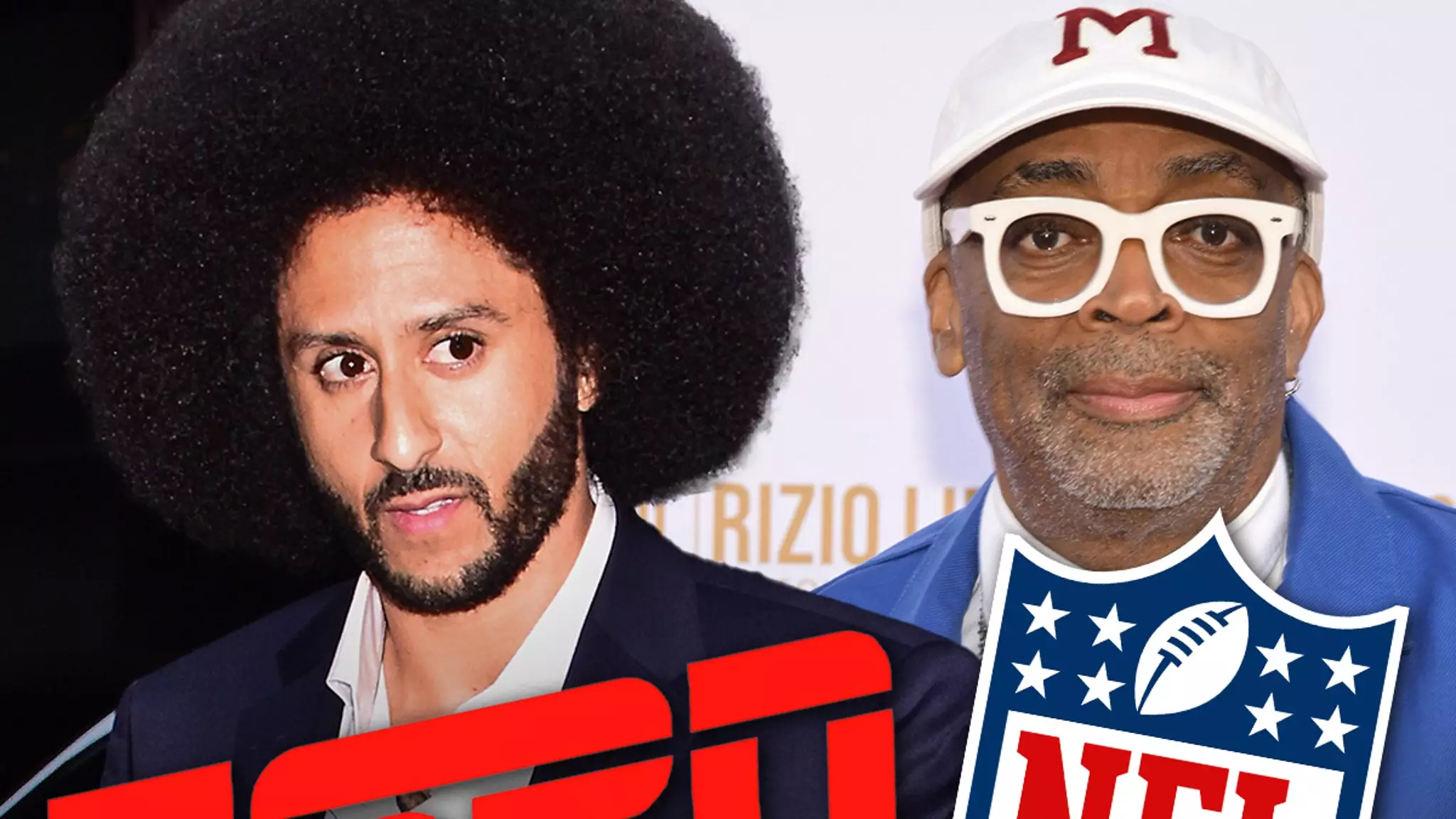Things are rarely as straightforward as they seem, especially in the blurred realm of high-profile media projects, corporate interests, and political influences. The sudden cancellation of Spike Lee’s documentary on Colin Kaepernick exemplifies this complexity. Initially framed as an issue of “creative differences,” many speculated that pressure from powerful entities like the NFL or ESPN’s business partners might have stifled the project. But according to credible sources, this narrative is incomplete at best. The decision to shelve the documentary was not influenced by the NFL—despite their close, longstanding ties with ESPN—and instead seems rooted in internal creative considerations or strategic shifts that are less visible to the public.
The misperception of undue corporate coercion fits into a larger pattern where public narratives often oversimplify, or worse, distort the true motives behind such quiet cancellations. While the timing of this decision appears suspect—especially given the heightened societal focus on racial justice—it’s crucial to recognize the subtle power play that may be at work. Networks and studios frequently recalibrate their priorities or redirect resources, often clamming up when projects threaten to disturb their partnership dynamics or risk alienating key demographics.
Decades of Synergy and a New Deal: The NFL and ESPN’s Intertwined Future
The history between ESPN and the NFL is deeply entrenched—spanning decades of successful collaborations that seem almost symbiotic. The recent NFL acquisition of a 10% stake in ESPN further cements their intertwined futures, highlighting a financial and strategic alignment that complicates claims of external pressure dampening revolutionary projects. If anything, these relationships are built on mutual benefit and shared interests, making it less plausible that the NFL would actively block a project critical of its stance or policies.
Moreover, the timing of the decision dates back to last summer, a period well before the current cultural climate intensified. Production started in 2022, and the series was in an advanced stage, signaling a serious investment from Lee. Its abrupt cancellation seems less like an external censorship act and more like a strategic retreat—perhaps due to concerns over its narrative angle, audience reception, or simply the complexities of balancing creative visions with corporate brand management.
Implications for Creative Freedom and Social Justice Movements
The silence surrounding this decision casts a shadow over the broader landscape of social justice storytelling. Kaepernick’s activism remains a divisive yet vital subject—one that challenges studios and networks to confront uncomfortable truths. The shelving of Lee’s documentary points to a chilling effect where corporate interests may prioritize marketability over meaningful dialogue. This isn’t just about one project; it signals a broader hesitation within mainstream media to give space to narratives that challenge comfortable power structures.
Lee’s reputation as a fearless filmmaker underscores this tension. If a filmmaker of his caliber can have a project canceled behind closed doors, it raises questions about the robustness of creative freedom in an era dominated by economic considerations. The cancellation may ultimately reflect a cautious approach by networks wary of alienating certain viewer segments or sparking controversy, rather than direct censorship or political meddling.
In questioning the motives behind this decision, we’re confronted with a larger truth: the struggle for honest storytelling in the age of corporate consolidation remains fierce. The suppression of Lee’s documentary on Kaepernick isn’t just about one series; it epitomizes the ongoing battle between artistic integrity and commercial interests in contemporary media.

